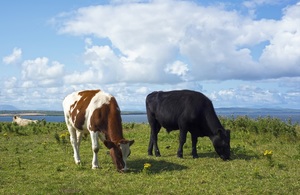Illegal activity costs Kings Lynn skip company £22,000
The director of a skip company has been ordered to pay £22,000 for operating an illegal waste site for over a year – despite repeated warnings from the Environment Agency.
Director Benjamin Lemmon, 37, was hit with the bill after pleading guilty to the charge in Norwich Magistrates’ Court on 29 September 2020.
His company Skippy Industries Ltd, based at Riverside Farm, Setchey, near Kings Lynn, stockpiled old refrigerators, soiled mattresses, rubble and other mixed waste outside in the open where it risked contaminating the nearby River Nar Site of Special Scientific Interest (SSSI).
The site was only permitted to store and treat waste indoors, within a certain area.
Only specific, low-risk activities were allowed outside, but officers from the Environment Agency who visited on 9 different occasions from May 2018 to April 2019 consistently found waste piling up on land used by the company.
The officers repeatedly gave advice and support, but the company failed to clear the waste despite being given multiple deadlines and extensions.
In interview, Mr Lemmon admitted he knew he should have sought an amended permit to allow him to lawfully extend the site, but said he couldn’t afford it. He claimed the company had been “a victim of its own success” and had “got too busy for the size of the building.”
The court heard Mr Lemmon’s ‘reckless’ actions had also undercut other legitimate businesses.
After the hearing, Senior Environment Officer Scott Cunnington of the Environment Agency said:
It’s our job to regulate waste activity to make sure it doesn’t put people or the environment at risk.
We always aim to work with and support business growth as long as it’s compliant with the rules.
We hope securing this criminal conviction of a waste operator serves as a wake-up call to other businesses and a reminder that they must stay within the conditions and boundaries outlined by their permits.
Barrister Mike McGee, defending, told the court that Mr Lemmon had little experience of the waste industry and had done his best to clear the non-compliant waste.
Mr Lemmon was fined £14,000 and ordered to pay £8,170 in costs and surcharges.
Anyone who suspects illegal waste activity should report it to the Environment Agency’s 24-hour hotline by calling 0800 80 70 60 or anonymously to Crimestoppers on 0800 555 111.
